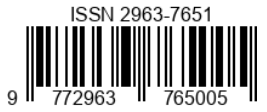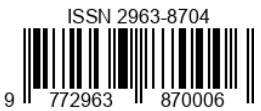Kewenangan Panitia Urusan Piutang Negara Ditinjau Dari Teori Sistem Hukum
DOI:
https://doi.org/10.55606/jhpis.v1i1.1748Keywords:
PUPN authority, legal system theory, management of State ReceivablesAbstract
The position of the Committee for State Receivables (PUPN), from a constitutional point of view, should be able to become a strong and professional representative interdepartmental institution in line with the goals and expectations of its establishment in accordance with laws and regulations to support the wheels of the economy and benefit the country's finances at a macro level. The problem in this study is regarding how PUPN's authority is viewed from the point of view of the legal system theory. The method used in this research is descriptive research method with a normative juridical approach. Law Number 49 Prp of 1960 concerning the Committee for State Receivable Affairs, is the forerunner of the paradigm for settlement of State Receivables by incorporating elements of managing and collecting state debts with very effective and strong authority from a legal standpoint. In addition, the institutional form that is interdepartmental gives a special image and the presence of law enforcement officials in it can have a significant psychological effect on the debt guarantor. Not to mention that the PUPN itself is equipped with parate execution powers which are the same as the court's execution powers.
Downloads
References
A. BUKU
M. Yahya Harahap, 2005, Ruang Lingkup Permasalahan Eksekusi Bidang Perdata, Sinar Grafika: Jakarta.
Amiruddin & Zainal asikin, pengantar Metode Penelitian Hukum,2012,Raja Grafindo Persada Jakarta.
Poesoko, Herowati, 2008, Parate Executie Obyek Hak Tanggungan (Inkonsistensi, Konflik Norma, dan Kesesatan Penalaran dalam UUHT), LaksBang Pressindo: Yogyakarta
Soerjono Soekanto. 2007. Pengantar Penelitian Hukum, Cetakan III. UI Press, Jakarta
B. UNDANG-UNDANG DAN PERATURAN PERUNDANG-UNDANGAN LAIN
Undang-Undang Nomor 49 Prp Tahun 1960 tentang Panitia Urusan Piutang Negara
UU Nomor 1 Tahun 2004 Tentang Perbendaharaan Negara
Peraturan Pemerintah Nomor 17 Tahun 1999 tentang Badan Penyehatan Perbankan Nasional sebagaimana telah beberapa kali terakhir dengan Peraturan Pemerintah Nomor 18 Tahun 2000 tentang Perubahan Ketiga Atas Peraturan Pemerintah Nomor 17 Tahun 1999 tentang Badan Penyehatan Perbankan Nasional
PP No 35 Tahun 2017 tentang Perubahan Kedua Atas Peraturan Pemerintah Nomor 14 Tahun 2005 tentang Tata Cara Penghapusan Piutang Negara/Daerah
Peraturan Presiden Nomor 89 Tahun 2006 tentang Panitia Urusan Piutang Negara
Peraturan Menteri Keuangan Nomor 240/PMK.06/2016 tentang Pengurusan Piutang Negara
Peraturan Menteri Keuangan Nomor 102/PMK.06/2017 tentang Keanggotaan dan Tata Kerja Panitia Urusan Piutang Negara

















